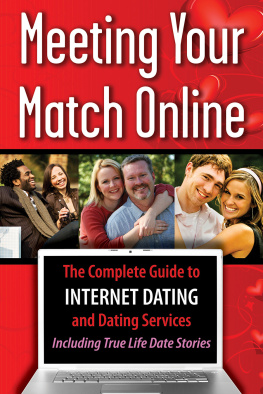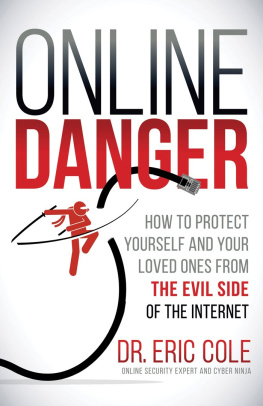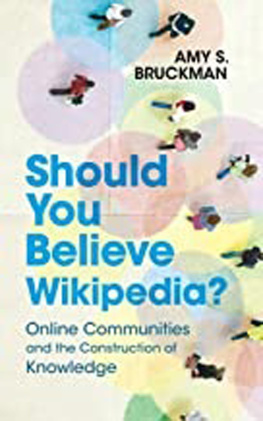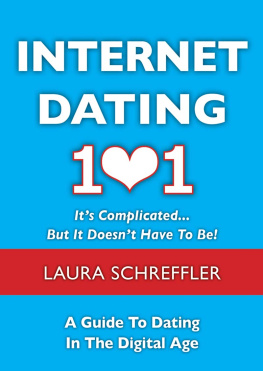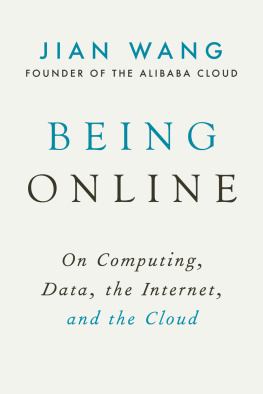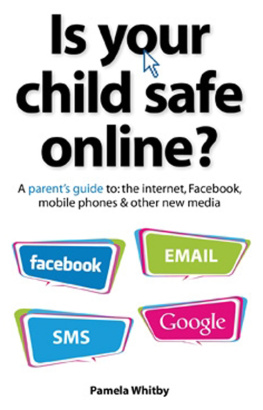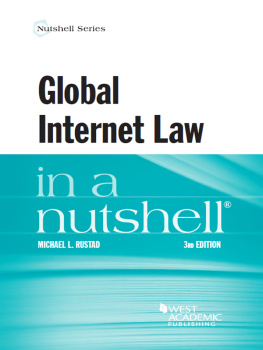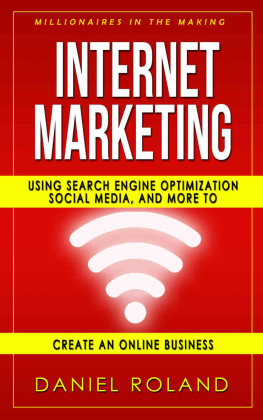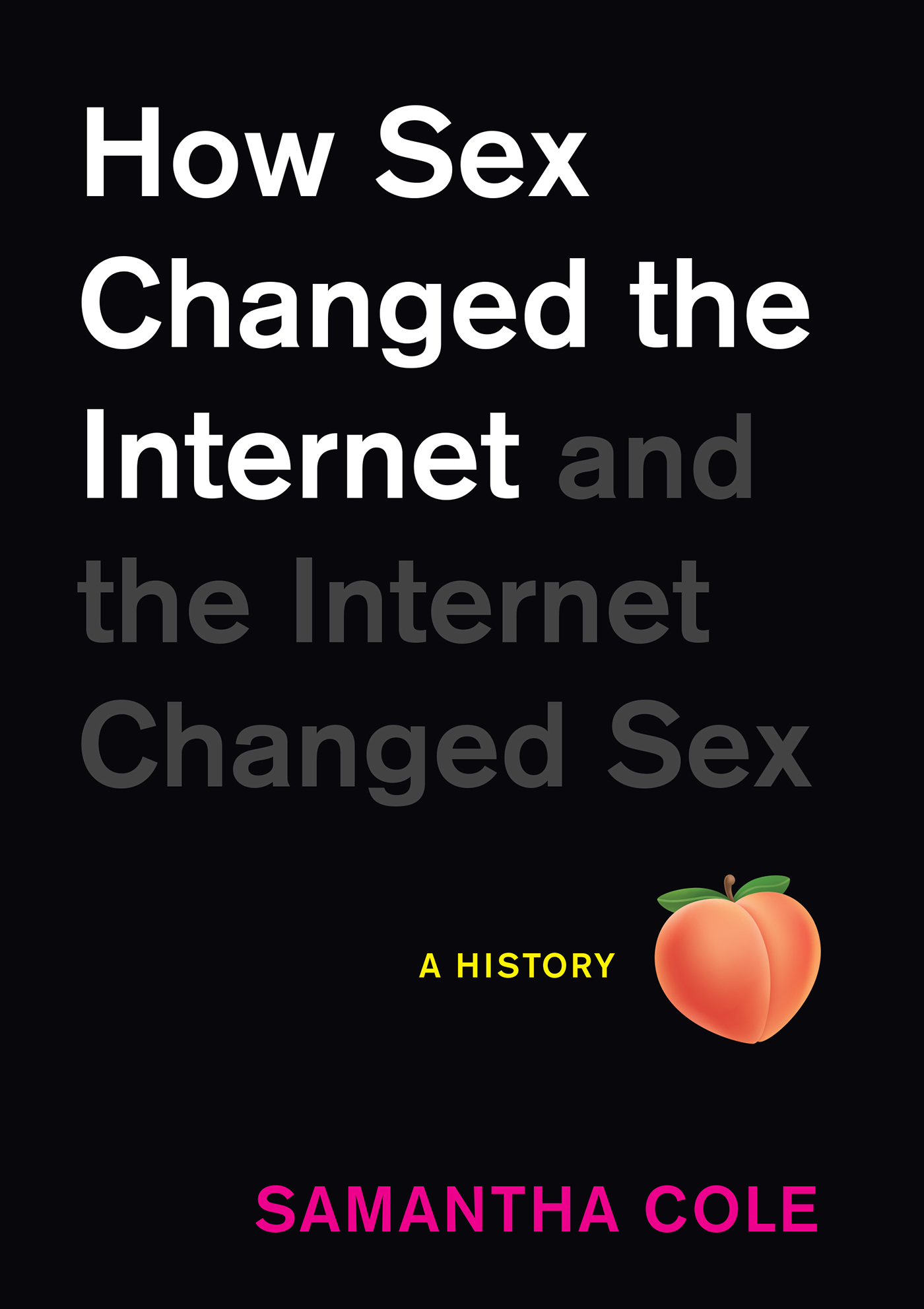
How Sex Changed the Internet and the Internet Changed Sex
An Unexpected History

SAMANTHA COLE
Workman Publishing New York
For the workers, posters, players, and survivors, my fellow members in the Now Online.

Contents
Introduction
We exist in a world of pure communication, where looks dont matter and only the best writers get laid.
legba, a player on LambdaMOO
S ome of my earliest experiences with writing creatively happened online, on message boards. As a homeschooled teenager growing up in the late nineties and early 2000s, I had the internet for a campus. On my message boards of choice, I gossiped about the weeks intra-forum drama with other members, debated scripture with middle-aged theologians, befriended queer atheists, shared poetry and photography and bottomless pages of writing with people I knew only by their screen names. To me, their preferred font also served as their voicea pink Comic Sans sounded a lot different than a dark green Times New Roman.
Writing was world-building and identity shaping. I crafted a parallel life on the other side of a static-charged monitor sitting in my parents living roomand later, on a six-pound white-trimmed Dell laptop. The undercurrent of all these conversations about religion or poetry or politics was romance. All my constant digital scribing turned into my first meaningful relationships, my first loves and heartaches. My friends and I had never met, but we would whisper together in private messages about who had crushes on whom. My eyes would dart to the now online sidebar, a sea of usernames, scanning for theirs. We had proms and parties and asked each other to dance. Someone gave me a pixelated flower bouquet.
Now in my thirties, I spend hours each day glued to Twitter and Metas Instagram, two monopolies that devouredand then razedthe Geocities websites and bulletin boards I once considered my digital homes. Todays social media feeds are a mix of the worst peoples unsolicited opinions about World War III, other people dunking on those people, and commands that I dont scroll past!!! crowdfunding requests for someones sick cat. These are buttressed with a grab bag of news headlines involving personal, national, and global horrors against the most marginalized of society, photos of a celebrity chinchilla, and ten-second video clips of bouncing asses and boobs on beaches and beds. All of this is received in a kind of blur, algorithmically selected in the order Im most likely to engage with it. Were users now, not members. And the products were using are one another, our fellow content creators. We pass around these little pixelated bouquets for the benefit of the companies running the platforms.
When you peer under the surface of all this consumerism and chaos, and back into the history of the internet, it becomes clear that the internet was built on sex, and sex has remained its through line no matter how hard some people try to deny it. A demand for sex built the shopping cart, the browser cookie, ad revenue models, payment processors, and the dynamic web page. The desire to explore and share our sexuality constructed the internet, piece by piece, as we know it today. And then technocratic billionaires betrayed the sexual for the sanitized and safe. We started labeling things safe for work and not safe for work, a binary thats telling of who we allowed to call the shots. Sexuality is either unsafe or safe under a pretense of labor, depending on whether a boss is cool with it. Capitalists built walls around the safe parts of the internet to appease investors, advertisers, banks, and zealotsand pushed everyone who didnt comply to the margins.
But theres a catch: There is no adult side of the internet. The internet isnt a wall with sexy stuff on one face and family friendly on the other. Its a web. And the ways we knit that web together, from the very beginning in late 1970s chat systems to today, is a choice. They include how we defend or concede our dwindling rights to sexual expression online, how control of that web looks, how we choose who gets to decide and participate, and how those decisions shape our lives away from the keyboard and at what cost.

The phrase in real life as a distinction from my already rich and captivating online worlds never made sense to me. Years before I sat down in front of an internet connection, the denizens of online social spaces had a word to address that dissonance: meatspace. For them, the corporeal world was already an extraneous one; the real interactions happened online. What sat in the computer chair was just flesh.
For a long time meatspace was an inside joke among tech nerds and geeks, a way to wink at the idea that the only thing separating the digital realm from the physical was a sack of wet bones, brain matter, and synapses. It was also a kind of dig: Bodies were just animated meat and anyone who took the real world too seriously was an ignorant sheep. As the internet went mainstream over the years, in real life, or IRL, became the bloodless replacement for meatspace.
In my late teens, the main forum where I spent most of my time changed owners. Things quickly took a turn for the worse. Terms of use got stricter, who was allowed to participate became narrower, and the digital walls closed in on users. My little friend group started to splinter off. We moved to separate chat platforms, then microblogging sites like Tumblr. Every move weakened our ties. It was my first time I realized that the homes we build on the internetplaces I thought would be constant, infinitewere temporary.
As I came across new tidbits or abandoned web pages in my research for this book, I couldnt shake the notion that none of what I saw was stable. From early 80s Usenet forums to the most current social media accounts, there were no guarantees they would still be there when I returned. YouTube play-throughs of erotic video games had already disappeared by the time I reached them, taken down for violating the platforms terms of service against sexual content. Nineties porn websites that were hand-coded with care and the hottest new live-cams or chat programs were gone, their owners having let the domain registrations lapse long ago. Links to news articles about early online sex work return 404 errors after newspapers folded, merged, or were acquired and shuttered, their URLs crumbling behind them.
What remains are writings carefully preserved through something of an internet oral history, kept by the people who were there. One of them was Carmen Hermosillo. Under the nom de plume humdog she wrote critically, lovingly, and prophetically about the virtual worlds she inhabited and how they made her feel: many times in cyberspace, i felt it necessary to say that i was human, she wrote. once, i was told that i existed primarily as a voice in somebodys head.
Hermosillos virtual and physical worlds were inexorably intertwined. She wasnt living apart from the systems she interrogated. She committed herself fully to dalliances, love affairs, and heartbreak online, to the point of full immersion and at the expense of her IRL self. Those close to her, her friends online, suggested she slow down, take a break from the internet for a while. In 2008, after the particularly devastating end to a relationship formed in the virtual world of
Next page

